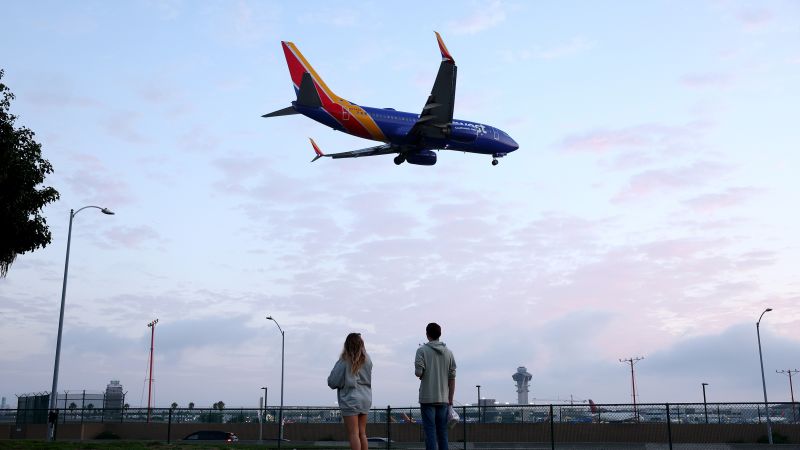Summarize this content to 2000 words in 6 paragraphs
Southwest Airlines pioneered the low-fare, no-frills airline model. But Southwest is now ending open-seat boarding, a distinct part of its successful five-decade-long model and its brand identity.
Southwest said Thursday that it will abandon its free-for-all seating arrangement and move to assigned seats. The company said 80% of customers prefer an assigned seat, and the change will also help the company charge some passengers more for new premium seats. The move shows how a company that once stood out by being different from competitors — “conventional wisdom put a hell of a lot of airlines out of business” its founder Herb Kelleher said — has become like other airlines.
The open-seat boarding process has been central to what Southwest calls its “egalitarian operating philosophy,” along with no bag fees or first-class cabins. Launched in 1971 with flights connecting Dallas, Houston and San Antonio, Southwest transformed the airline industry by offering cheap fares and helped open up air travel beyond the wealthiest Americans.
“Southwest open seating is the ultimate expression of its founding ethos: to make air travel affordable and accessible for everyone,” the company says on its website. An unofficial motto of Southwest Airlines’ open seating was once, “You can sit anywhere you want — just like at church.”
If you’ve never flown Southwest, here’s how the boarding process works: passengers are assigned one of three boarding groups and positions — 1 through 60 —when they check-in. Once their boarding group is called at the gate, they line up by number and board the plane. They are free to choose any seat available.
The company’s open-boarding policy made business sense for Southwest, allowing it to fly more planes a day than competitors. Open seating helped Southwest load and unload passengers, which Southwest CEO Bob Jordan said meant more on-time departures and cost savings on Thursday’s earnings call. Southwest’s method worked because passengers spent less time waiting in the aisle and had more freedom to sit where it’s least crowded.
Even as other airlines switched to assigned seats in recent decades, Southwest kept its boarding process the same.
“Open seating became a very strong brand component with our customers, and something that we wanted to continue to offer them — that freedom of choice,” former Southwest CEO Gary Kelly said in 2007.
The radical shift away from five decades of precedent represents changing customer preferences – and struggles in Southwest’s traditional business model. The company has been losing money in recent years, and it has been hamstrung by its inability to charge for extra legroom and other seating perks like its competitors can.
Some loyal Southwest customers vented their frustration about the policy change on social media.
“Being B42 on Southwest Airlines and asking everyone in the area ‘what number are you?’ to make sure B43 isn’t skipping you was an American tradition,” one fan said on X. “Sad day.”
“I actually prefer open seating in certain cases; I’m able to avoid kids, seats where someone made a mess, people who look sick, people who are eating something gross,” another wrote on social media app Bluesky.
Sandy Wolfe, a frequent Southwest flier, told CNN that open boarding was part of Southwest’s appeal and separated it from other airlines. She worries she will have to pay extra for her traditional A-group seats as Southwest moves to assigned seats.
“I have really liked their uniqueness. They weren’t like the other airlines,” she said. “I thought it was an adventure standing in line. I always met great people.”
But Wolfe said she understood that open-seat boarding made some customers anxious and has friends who refused to fly Southwest because they can’t get assigned seats.
Other Southwest customers on social media said they were happy with the move.
“Open seating on Southwest is a nightmare if you can’t get to the gate before boarding begins,” one customer said on X, noting that traffic and long lines in security often made it hard to arrive with enough time.
The move may help Southwest’s profit at a tumultuous moment for the company.
Southwest is under pressure from activist investors at Elliot Investment Management, who have been pushing for changes in management and growth in profitability. Southwest reported a 51% drop in adjusted profit last quarter, despite hitting record revenue. But activist pressure did not factor into the company’s move to assigned seats, Southwest CEO Jordan said on the earnings call.
Southwest has been facing competition from major carriers, American, United and Delta, which get much of their revenue from charging more for premium seating. It also faces pressure from ultra-low cost carriers, such as Spirit and Frontier, which offer bargain-priced seats. Customers have to pay extra for just about everything on these flights, including carry-on bags.
Although Jordan told investors Southwest has no plans to start charging for the first two checked bags, activist investors could press Southwest to charge for bag fees to increase profits, said William McGee, a Senior Fellow for aviation and travel at the American Economic Liberties Project, which advocates against concentrated economic power.
“Southwest is the only airline in the United States that does not charge junk fees for first checked bags, or even second checked bags,” he said. “And Southwest has long avoided charging ticket change fees. Elliott’s influence is already being felt, and it seems apparent more junk fees are part of the master plan.”













